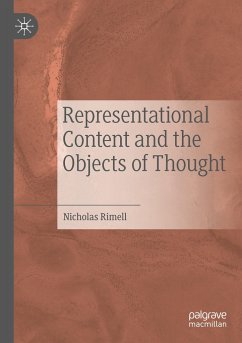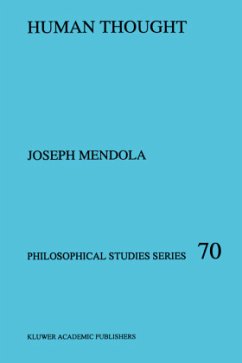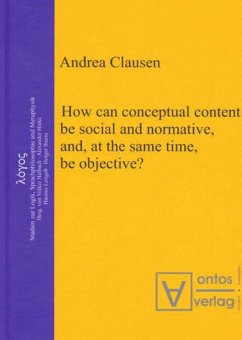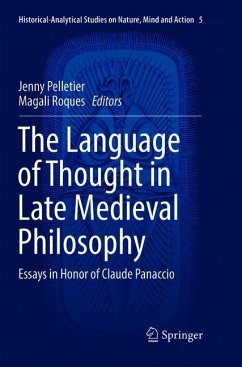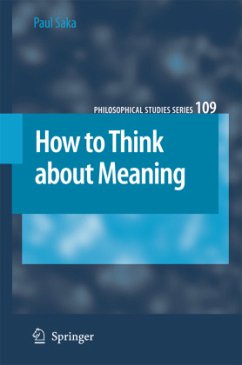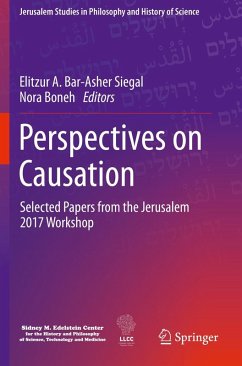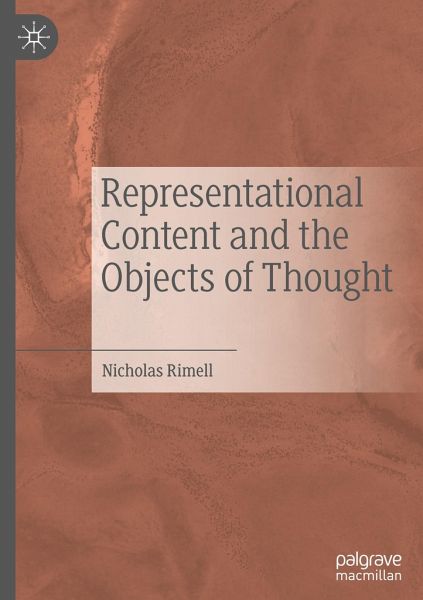
Representational Content and the Objects of Thought
Versandkostenfrei!
Versandfertig in 6-10 Tagen
76,99 €
inkl. MwSt.
Weitere Ausgaben:

PAYBACK Punkte
38 °P sammeln!
This book defends a novel view of mental representation-of how, as thinkers, we represent the world as being. The book serves as a response to two problems in the philosophy of mind. One is the problem of first-personal, or egocentric, belief: how can we have truly first personal beliefs-beliefs in which we think about ourselves as ourselves-given that beliefs are supposed to be attitudes towards propositions and that propositions are supposed to have their truth values independent of a perspective? The other problem is how we can think about nonexistents (e.g., Santa Claus) given the widespre...
This book defends a novel view of mental representation-of how, as thinkers, we represent the world as being. The book serves as a response to two problems in the philosophy of mind. One is the problem of first-personal, or egocentric, belief: how can we have truly first personal beliefs-beliefs in which we think about ourselves as ourselves-given that beliefs are supposed to be attitudes towards propositions and that propositions are supposed to have their truth values independent of a perspective?
The other problem is how we can think about nonexistents (e.g., Santa Claus) given the widespread view that thought essentially involves a relation between a thinker and whatever is being thought about. The standard responses to this puzzle are either to deny that thought is essentially relational or to insist that it is possible to stand in relations to nonexistents. This book offers an error theory to the problem.
The responses from this book arise from thesame commitment: a commitment to treating talk of propositions-as the things towards which our beliefs are attitudes-as talk of entities that actually exist and that play a constitutive and explanatory role in the activity of thought.
The other problem is how we can think about nonexistents (e.g., Santa Claus) given the widespread view that thought essentially involves a relation between a thinker and whatever is being thought about. The standard responses to this puzzle are either to deny that thought is essentially relational or to insist that it is possible to stand in relations to nonexistents. This book offers an error theory to the problem.
The responses from this book arise from thesame commitment: a commitment to treating talk of propositions-as the things towards which our beliefs are attitudes-as talk of entities that actually exist and that play a constitutive and explanatory role in the activity of thought.



